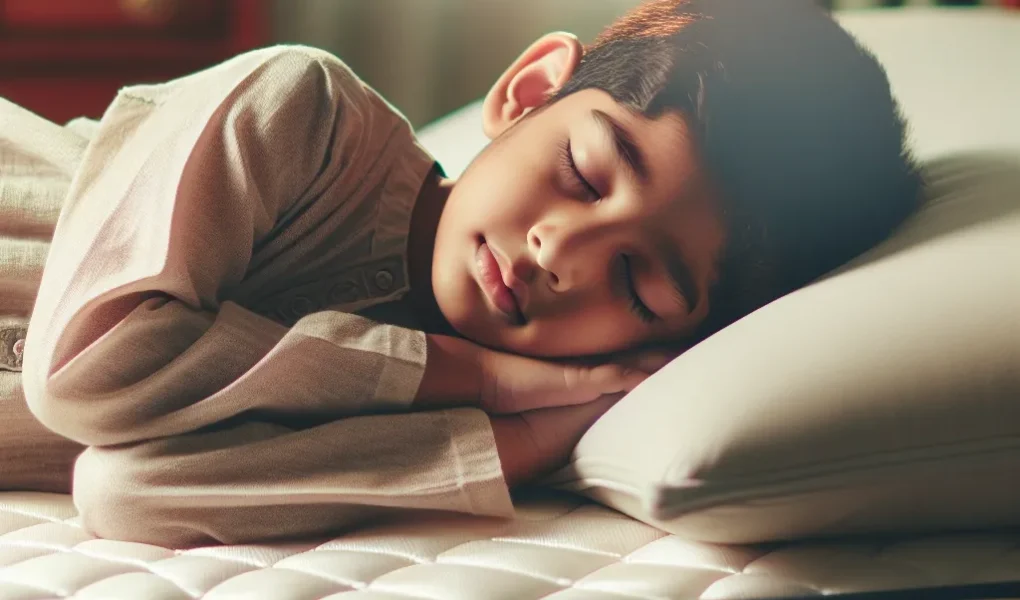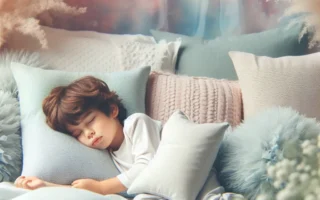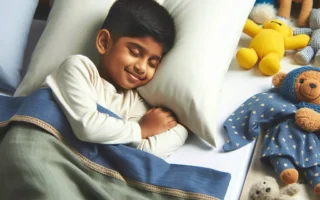The Importance of Sleep Quality for Children
When it comes to choosing the best mattress for children, parents often prioritize factors such as comfort, support, and durability. However, one crucial aspect that should not be overlooked is the importance of sleep quality for children. Quality sleep plays a fundamental role in children’s overall health and well-being, making it essential for parents to carefully consider the type of mattress their child sleeps on.
Research has shown that adequate and restful sleep is vital for children’s physical and mental development. A comfortable and supportive mattress can significantly impact the quality of a child’s sleep. It helps ensure proper spinal alignment, allows for restorative rest, and minimizes discomfort, all of which contribute to better sleep quality.
Furthermore, high-quality sleep has been linked to improved cognitive function, emotional regulation, and behavior in children. Children who consistently experience restful sleep are better equipped to concentrate, learn, and engage in daily activities. On the other hand, poor sleep quality can lead to irritability, reduced attention span, and other behavioral issues.
Therefore, when selecting a mattress for their children, parents should prioritize features that promote better sleep quality. This may include choosing a mattress with appropriate firmness, adequate support, and suitable materials to ensure comfort. Additionally, considering factors such as allergies and temperature regulation can further enhance the sleeping environment for children.
In conclusion, the significance of sleep quality for children cannot be overstated, and the role of a good mattress in ensuring this quality should not be underestimated. By prioritizing sleep-friendly features when choosing a children’s mattress, parents can contribute to their child’s overall health and development.
Key Factors to Consider When Selecting a Children’s Mattress
When it comes to choosing the best mattress for children, there are several key factors that parents need to consider. The first and most important factor is the mattress firmness. Children need a mattress that provides adequate support for their developing bodies, so a medium-firm mattress is generally recommended. This helps to ensure proper spinal alignment and promotes healthy sleep posture.
Another important consideration is the mattress material. Look for hypoallergenic materials to reduce the risk of allergic reactions, and consider options that are free from harmful chemicals and toxins. Additionally, waterproof or water-resistant mattresses can be a practical choice for young children who are prone to accidents. These features can help to prolong the life of the mattress and keep it clean and hygienic.
Size is also a crucial factor when selecting a children’s mattress. While a crib mattress may be suitable for infants and toddlers, as children grow, a twin or full-size mattress may be more appropriate to accommodate their changing needs. It’s important to choose a size that allows for comfortable and undisturbed sleep, taking into account the child’s age, size, and any potential growth spurts.
Lastly, durability and quality are key considerations. A well-made mattress can last for many years, providing comfort and support as a child grows. Look for mattresses with a strong support system and high-quality materials to ensure longevity.
By carefully considering these key factors – firmness, material, size, and quality – parents can select the best mattress to support their child’s healthy growth and development.
Understanding the Impact of Mattress Support on Child Development
When it comes to choosing the best children’s mattress, parents need to consider various factors that can impact their child’s development. One crucial aspect to understand is the impact of mattress support on child development. The level of support provided by a mattress is essential for ensuring proper spinal alignment and overall comfort, which are particularly important during a child’s formative years.
Proper mattress support can contribute to healthy sleep posture, helping to prevent discomfort and potential issues such as muscle pain and poor circulation. Additionally, a well-supported mattress can aid in the proper growth and development of a child’s skeletal system.
Research has shown that children who experience discomfort or inadequate support during sleep may have difficulties with concentration, mood regulation, and overall cognitive function. Therefore, investing in a high-quality mattress that offers adequate support is an important aspect of promoting healthy child development.
When shopping for a children’s mattress, parents should prioritize options that provide firm yet comfortable support, taking into account the child’s weight and preferred sleep position. By understanding the impact of mattress support on child development, parents can make informed decisions to support their child’s overall well-being.
Tips for Finding the Right Children’s Mattress
When it comes to choosing the best children’s mattress, parents need to consider several important factors to ensure their child gets a good night’s sleep. Here are some tips for finding the right children’s mattress:
- Support: Look for a mattress that provides adequate support for your child’s growing body. A mattress with good support will help promote healthy spine development.
- Comfort: Opt for a mattress that offers a comfortable surface for your child to sleep on. Memory foam or hybrid mattresses can provide a good balance of support and comfort.
- Size: Consider the size of the mattress based on your child’s age and growth. A twin or twin XL mattress is typically suitable for younger children, while older kids may need a full-size mattress.
- Durability: Choose a mattress that is durable and built to last through years of use. Look for high-quality materials and construction to ensure longevity.
- Hypoallergenic features: If your child has allergies, consider a mattress with hypoallergenic or antimicrobial properties to minimize allergic reactions.
- Waterproofing: Given the likelihood of spills and accidents, a waterproof mattress protector can help keep the mattress clean and prolong its lifespan.
- Warranty: Check for a good warranty to protect your investment in case of any manufacturing defects or premature wear.
By taking these tips into consideration, parents can make an informed decision when choosing the best mattress for their child, ensuring a restful and supportive sleep environment.



